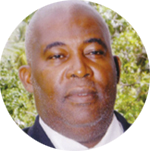
IN 2012, the Caribbean Examination Council, CXC, was in the pilot stage of the implementation of a Primary Exit Assessment for Primary Schools in the Caribbean. After eight years, the project is yet to be implemented and a status report presented.
The chairman of the advisory council at the time was Dr. Desmond Broomes of Barbados, who has since passed away. But did the project die with Dr.Broomes?
In this article, I will investigate that project against virtual teaching and learning in a new normal that is prevailing in this atmosphere of COVID-19.
CXC had conducted research in 16 of the participating territories in the Caribbean, including St. Lucia, and it was expected that all of those territories would implement a common assessment at all the Primary Schools to replace the varying exit examinations now taking place in those islands.
It is interesting to note that the then Registrar of the Caribbean Examination Council was our very own former Permanent Secretary in the Ministry of Education, and current Director General of the Organization of Eastern Caribbean States, OECS, Dr. Didacus Jules.
Now what exactly was the CPEA? Very simply, it was an assessment designed to replace the Common Entrance Examination which is mainly a Pen and Paper Test which has been used as a tool to test Primary
School students who are ready to enter Secondary School.
For many years, Principals and classroom teachers who had pursued higher learning and new alternative forms of assessment to replace the mainly Pen and Paper test, had been clamouring for a change to a more authentic form of assessment.
By authentic assessment I mean that the new mode would look at the holistic development of the student instead of a three hour pen and paper test that is the current Common Entrance Examination in St. Lucia and several of the other Caribbean territories.
Many students get very nervous under the Pen and Paper test. And what made it worse was the extreme pressure from parents for their children to enter the ‘top’ secondary schools.
Now with the new policy that all children writing the Common Entrance Examination would enter a Secondary School does not change the anxiety of this high-stake exam. Students develop a fright at the mere sound of the word test. And that anxiety could ‘throw’ them off completely even though the students do not show an outward or visible sign of nervousness.
The Common Entrance Results were released by the Ministry of Education on Monday, 13th July, 2020. Several students were interviewed by media houses, and they expressed clearly a level of apprehension about the structure of the examination which was mainly multiple choice. They did not get an opportunity to express themselves in the language paper, nor did they get the opportunity to demonstrate their mathematical skills in the mathematics, Problem Solving area.
Indeed, as an educator myself, I fully understood the reasons why the exam was wholly or completely Multiple Choice. The time frame did not allow for other aspects of assessment.
Covid-19 has given us the opportunity to look seriously at virtual teaching and learning and its relationship with cooperative learning and teaching and a more authentic form of assessment which would be assessing the whole child long before the Pen and paper test.
The New Caribbean Exit exam would be looking at the students under normal, non- threatening classroom conditions or situations like: Carrying out and documenting projects; Book Reports; Can Do Skills; Self – Assessment and teacher prepared tests to be done in groups in a non-threatening environment; and, indeed a Pen and Pater test which an important part of assessment.
The Caribbean Exit Examination is intended to consider the Projects, Reports, Can Do Skills; self-Assessment as 40% of the examination score. The other 60% would comprise the Pen and Pater Test or examination.
Let me take the opportunity to inform you that the CPEA would take into consideration some fundamental principles of learning as follows: Pupils’ Active Participation in their own learning improves performance; parental involvement in pupils learning improves the pupils’ performance and Teacher interaction with pupils and providing feedback improves pupil performance.
The CXC had organized special workshop for key stake- holders or interest groups in the new system of assessment. Those included; principals, teachers, parents and students of Grade 6, and members of the public. I personally took interest in and attended a couple of sessions. There was a very good session which was held at the Castries Comprehensive Secondary School.
At this point, I don’t know what has happened since there has not been any feedback from those concerned, even though Dr. Desmond Broomes, the coordinator has since passed. Nothing at all to the stake-holders!
Let me assure you that if the CPEA had already been formally introduced to our education system there would have been a pool of assessment data of students from which to draw.
St. Lucia has been exceptional in its handling of the Covid-19 Pandemic. The government, CMO and her team, indeed the Ministry of Health, the people of St. Lucia must be commended. However, if the situation or condition in the country had not allowed us to have the Common Entrance Examination, then what would have been the assessment situation for our Primary school students?
The Ministry of Education may be able to provide an answer.
In my next article I will investigate the Multiple Choice examination as part of Formal Assessment.





